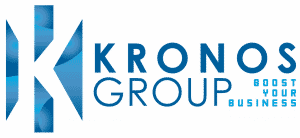Summary In the contemporary business environment, digital procurement is becoming increasingly popular and sought after by businesses around the world. The relationships …
How does project consulting help navigate change management and ensure success in digital transformations?
What is change management and what is its significance for project success?
Change management is a structured approach to transition individuals, teams and organisations from their current state to the desired future state. Changes to processes, systems, or structures within an organisation are the subject of planning, implementation, and monitoring.
It encompasses a range of activities, including identifying the need for change, assessing its impact, developing strategies to manage resistance, and facilitating the adoption of new behaviours or ways of working.
The importance of change management cannot be overstated when it comes to project success. It is a guide that ensures that projects meet their intended objectives and deliver value for the organisation.
Why are change management practices crucial for driving successful project outcomes?
Organisations can improve their chances of achieving the results they seek and realise all project benefits by recognising change management as an integral part of planning and implementing projects
Minimise resistance and increase adoption
By addressing concerns, communicating benefits and involving stakeholders in the decision-making process, effective change management practices reduce the resistance of employees to change. Organisations can enhance employees’ willingness to adopt new processes, systems, or technologies by promoting a culture of openness and transparency.
Ensure alignment with organisational goals
The alignment of project objectives with broader organisational goals is ensured by change management. Firms can make sure that resources are allocated fairly and that the results of projects play an important role in facilitating business success by clearly explaining why change is necessary and how it will support strategic goals.
Enhance project efficiency and effectiveness
Structure and accountability throughout the project life cycle are promoted through change management practices. Organisations can increase project efficiency and effectiveness and derive successful outcomes by defining clear roles and responsibilities, setting realistic deadlines and milestones, and providing ongoing support and guidance.
Mitigate risks and uncertainties
Change management helps firms anticipate and mitigate risks and uncertainties associated with project implementation. By conducting thorough risk assessments, developing contingency plans, and actively monitoring progress, organisations can proactively address challenges and minimise disruptions—increasing the likelihood of project success.
Foster stakeholder engagement and support
Effective change management practices foster stakeholder engagement and support in the change process from the start. By soliciting feedback, addressing concerns, and actively involving stakeholders in decision-making, organisations can build trust, credibility, and commitment, ensuring sustained support for the project throughout its lifecycle
Maximise return on investment (ROI)
Change management practices help firms maximise the return on investment of their projects. By driving the successful adoption and implementation of change initiatives, organisations can achieve tangible business results, such as increased productivity, reduced costs, improved customer satisfaction, and enhanced competitive advantage.
Efficient change management practices need to be carried out to minimise resistance and ensure coherence with organisational objectives, improve project efficiency and effectiveness, mitigate risks and uncertainties, and foster stakeholder participation and support while maximising return on investment.
Why do organisational change initiatives fail?
70% of change management initiatives tend to fail.
When implementing organisational change, resistance from employees is a common problem. There is often uncertainty about the change, leading employees to resist because they are afraid of unknowns or worried about how it will affect their jobs, responsibilities, and employment. Workers may be resistant to change if they feel that their autonomy or control over working practices is in danger. Fear of losing familiar practices or decision-making powers may also contribute to employees’ resistance.
The success of change initiatives may be hampered by a lack of stakeholder interest as well. When key stakeholders are not adequately involved in the change process, they may feel disconnected from the initiative and less likely to support it. The lack of alignment in the proposed change with the strategic objectives or priorities of the organisation may lead to resistance. It may be difficult to obtain sufficient resources and support for change without the participation of stakeholders such as the C-suite.
Resistance to change is exacerbated by inadequate communication. When they are not adequately informed of the reasons for change, anticipated outcomes, and timelines, it can cause resistance and morale issues among employees. In addition, the secrecy of information or communication may give rise to rumours and speculation—weakening trust and creating new resistance.
To foster understanding and buy-in, it is necessary to involve employees in dialogue, solicit feedback, and address their issues. Failure to engage employees in meaningful communication can breed scepticism and resistance to change initiatives.
Successful change management addresses employee resistance, secures stakeholder support, and fosters robust communication. Organisations can mitigate resistance and improve the probability of success in implementing change initiatives through proactive measures to address these challenges.
Active measures and a thorough change management strategy are needed to address these common causes of failure. To make it easier to implement change successfully, organisations need to focus on clear communication—proactively engaging with stakeholders, addressing employees’ concerns, and providing support and resources. Organisations can improve the likelihood of successful results and reduce resistance to change initiatives by addressing these challenges promptly.

What does project consulting offer change management efforts?
Change readiness assessments
To assess an organisation’s readiness and capacity for change, consulting firms conduct a thorough assessment of its preparedness. It assesses factors such as organisational culture, employee attitudes, existing procedures and readiness for new technologies as part of this process. This helps determine potential obstacles such as resistance from employees, lack of leadership support, or insufficient resources for transformation. Consulting firms can configure their change management strategies to meet specific challenges and maximise the likelihood of success, based on the knowledge of organisational readiness for change.
Stakeholder engagement strategies
To ensure that key stakeholders are involved and supported through the change process, consulting firms develop comprehensive stakeholder engagement strategies. Identifying key stakeholders, assessing their influence and interests, and developing targeted communication and engagement plans may be part of this process. They may also implement stakeholder engagement strategies aimed at building consensus, generating awareness and facilitating cooperation. To effectively engage stakeholders, consulting firms use various communication channels and methods of engagement, such as workshops, team meetings and one-on-one meetings.
Communication plans
To ensure that key messages are communicated to stakeholders, effective communication is crucial. It can spell the success of change management, and consulting companies have developed communications plans. This includes identifying messages and suitable channels and establishing a protocol for communications. Communication plans include strategies for addressing resistance and concerns, providing regular updates on the progress of change initiatives, and feedback from employees and stakeholders. Communication is timely, transparent and in line with the firm’s overall change objectives are ensured by consulting firms.
Change leadership and sponsorship
Consultancy assists firms in identifying and empowering change champions, guiding change leadership and sponsorship. These leaders are playing an essential role in the drive for change, promoting initiative and simulating behaviour that needs to be changed. These consulting companies work in close cooperation with the top management, providing support and resources, and aligning strategic objectives so that they can play an active role and be seen throughout this change process. Consulting helps organisations adapt to changes in the environment and remain competitive, by promoting continued improvement and development.
Navigating digital transformation change management with project consulting
Consulting in project management isn’t just about knowing the terrain; it’s about having a seasoned guide by your side. Project management consultants at Kronos Group serve as your trusted advisors, steering your organisation away from potential pitfalls and costly oversights. Their invaluable knowledge acts as a beacon, shining light on the path to your project’s goals.
Project management consulting is not a one-size-fits-all solution; it’s an individual approach. Our consultants work closely with your organisation to develop a custom strategy that seamlessly meets your specific project objectives, budget constraints and time limits. We aim to facilitate strategic alignment in your overarching vision through collaboration in partnership.
With our support, your organisation will be able to manage change management challenges confidently. Get in touch with us today and experience the different Kronos Group can bring to the table.
Fighting the effects of inflation with sourcing and procurement consultants
Stay up-to-date on the latest insights on procurement, finance, and project management.
Summary Strategic procurement has become a necessity in today’s business world and organisations try to remain competitive. Having the right procurement strategies …
Summary The world of consulting has been undergoing a massive transformation and management consulting jobs are experiencing the impacts of these changes. …
FAQ
Project consultants bring specialised knowledge, skills, and experience to help organisations plan, execute, and manage their projects more effectively. They may offer services such as project planning, risk management, stakeholder engagement, resource allocation, and project monitoring and evaluation.
Project consulting can help your organisation achieve its goals by providing expert guidance, support, and resources to optimise project outcomes. Consultants can help identify and address challenges, leverage industry best practices, and ensure that projects are strategically aligned with organisational objectives, ultimately driving success and delivering value.
Project management involves the hands-on execution and oversight of project tasks to achieve specific objectives, while project consulting provides expert advice and strategic guidance to optimise project outcomes without direct involvement in day-to-day project activities.















